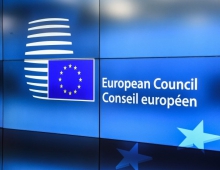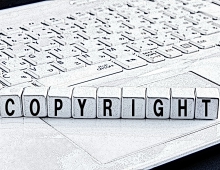
War on Piracy in U.S. Universities
The Recording Industry Association of America (RIAA) and the Motion Picture Association of America (MPAA) will now be fighting illegal file sharing that is taking place on university LANs.
As such, the RIAA and the MPAA yesterday sent letters to presidents of 40 universities in the U.S. informing them of piracy problems on their schools' local area networks and asking for immediate action to stop it and take steps to end the theft of music, movies and other copyright content.
The organizations say that college students are more and more using programs such as Direct Connect (DC++), MyTunes and OurTunes to trade music across their schools' networks without having to send or receive files across the public Internet.
According to a release issued by the two associations, campus LANs provide a way to engage in illegal file sharing and eliminates the danger of being caught.
"Piracy on campuses has been a concern for quite a while, and we have been actively engaged in a number of efforts with universities to get the word out to students," said Gayle Osterberg, an MPAA spokeswoman. "This particular trend or growing problem is something that is a more recent development, and we are working on all fronts to stay on top of all means of piracy and addressing them."
Osterberg said that the advocacy groups recognize that they have to address all forms of illegal file sharing and to be proactive in trying to stop it.
The new intiative follows several other moves the organizations have made to try to keep students from using their schools' networks to trade music and other copyrighted content.
Some opponents to the increasing legislation and measures to fight intellectual property on the Internet feel that Thursday's action by the MPAA and RIAA shows that their strategy of suing file swappers isn't working.
Fred von Lohmann, a senior staff attorney at the Electronic Frontier Foundation (EFF) mentionned that a very similar letter was sent to universities about Napster in 1999 or 2000.
Von Lohmann said the EFF's answer is to encourage the MPAA and RIAA and universities to work out a system where the schools pay licensing fees and "let the students do what they're going to do anyway."
The organizations say that college students are more and more using programs such as Direct Connect (DC++), MyTunes and OurTunes to trade music across their schools' networks without having to send or receive files across the public Internet.
According to a release issued by the two associations, campus LANs provide a way to engage in illegal file sharing and eliminates the danger of being caught.
"Piracy on campuses has been a concern for quite a while, and we have been actively engaged in a number of efforts with universities to get the word out to students," said Gayle Osterberg, an MPAA spokeswoman. "This particular trend or growing problem is something that is a more recent development, and we are working on all fronts to stay on top of all means of piracy and addressing them."
Osterberg said that the advocacy groups recognize that they have to address all forms of illegal file sharing and to be proactive in trying to stop it.
The new intiative follows several other moves the organizations have made to try to keep students from using their schools' networks to trade music and other copyrighted content.
Some opponents to the increasing legislation and measures to fight intellectual property on the Internet feel that Thursday's action by the MPAA and RIAA shows that their strategy of suing file swappers isn't working.
Fred von Lohmann, a senior staff attorney at the Electronic Frontier Foundation (EFF) mentionned that a very similar letter was sent to universities about Napster in 1999 or 2000.
Von Lohmann said the EFF's answer is to encourage the MPAA and RIAA and universities to work out a system where the schools pay licensing fees and "let the students do what they're going to do anyway."





















